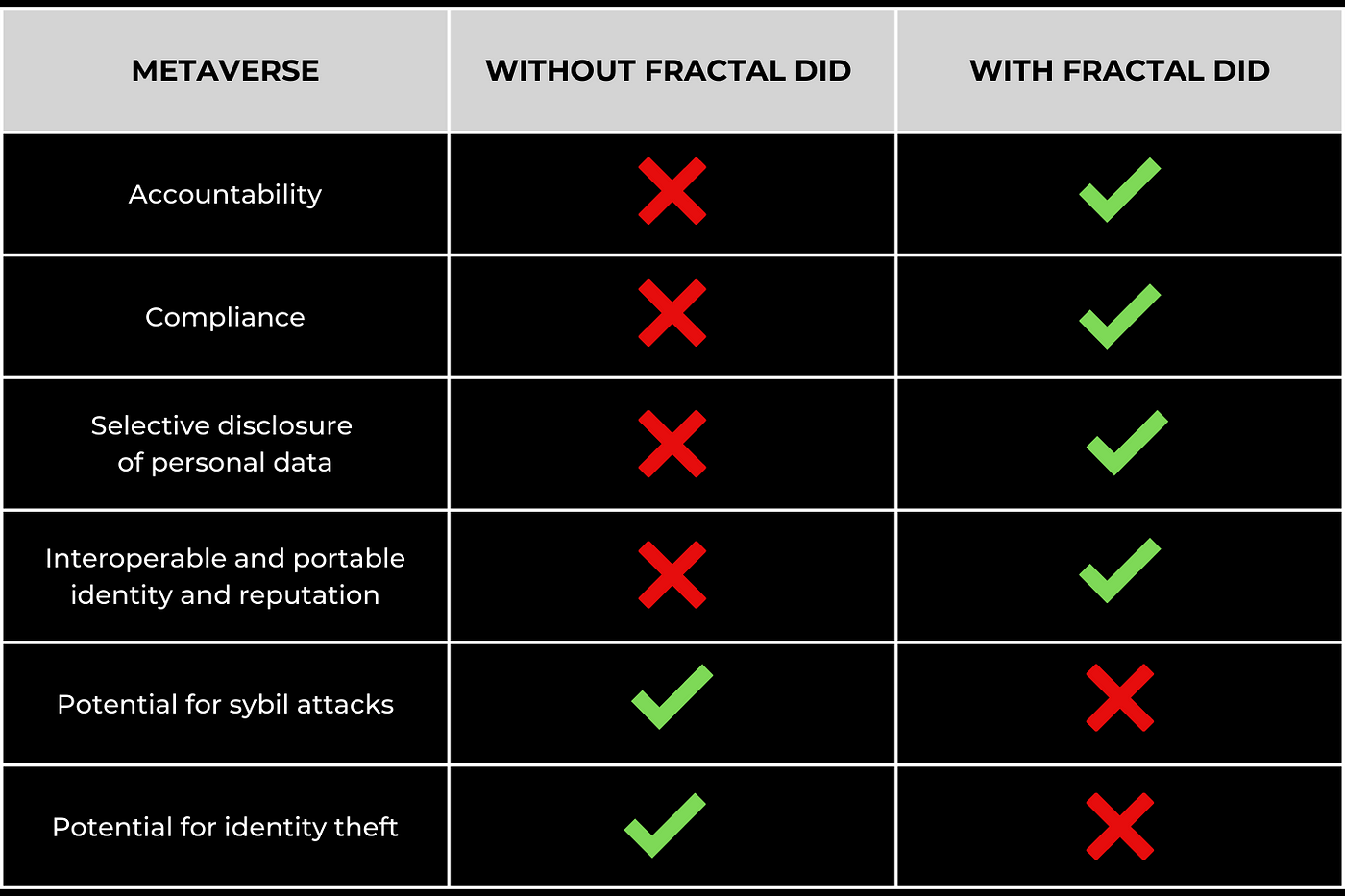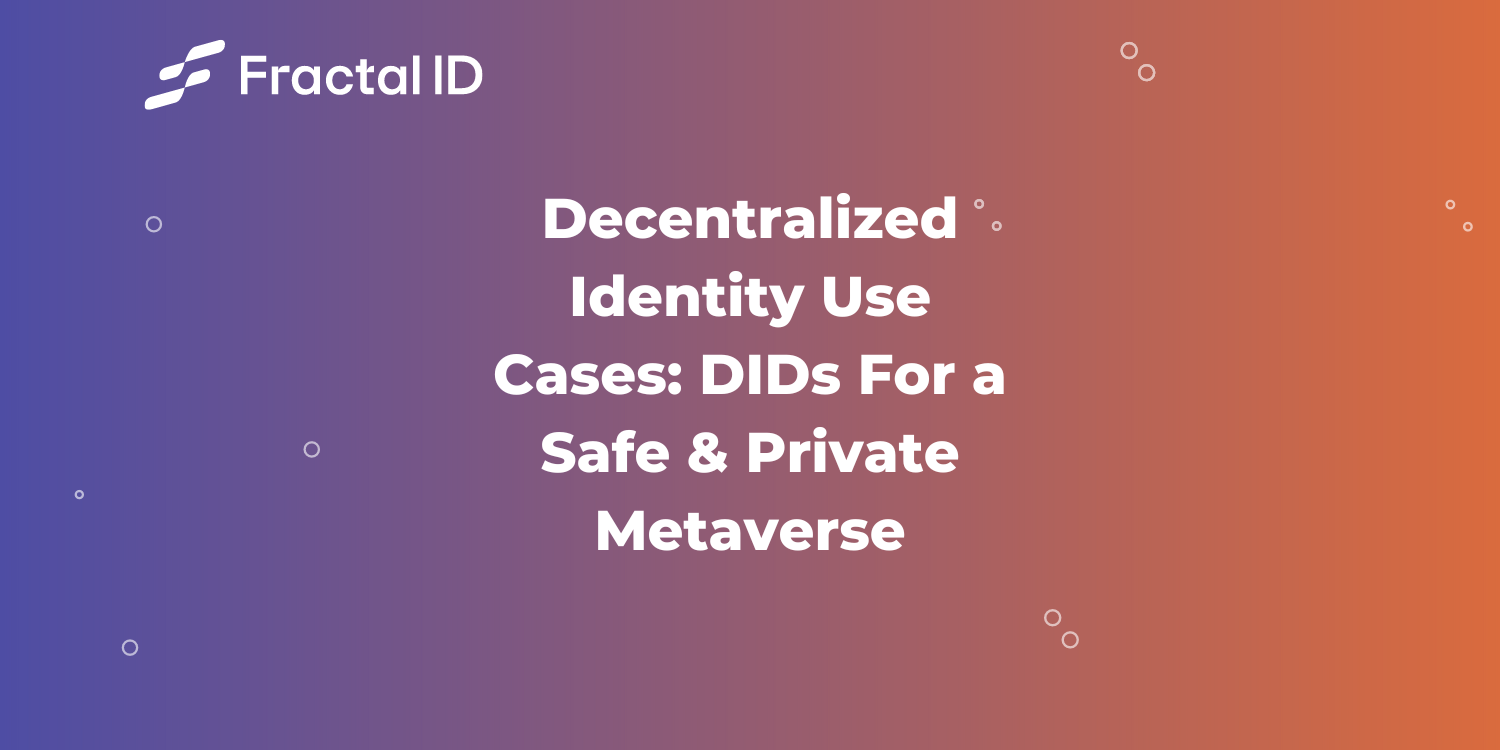Although it is still in its infancy, the global metaverse market size is growing exponentially and is expected to reach a market value of almost 2 trillion USD by 2030 growing at an annual rate of above 45% from 2022 to 2030. The metaverse carries numerous opportunities for businesses and users alike, helping people connect, socialize, and create collaboration opportunities across the globe, from their homes, and without needing to identify their gender, race, or ethnicity.
Nonetheless, the pseudonymous nature of the metaverse brings along challenges to users and platforms alike.
In this article, we explore how decentralized identity can foster mass adoption of the metaverse by providing the opportunity to have an interoperable and portable reputation, filling the gap of accountability in a pseudonymity-dominated society, and creating a safe environment for users to connect and collaborate.
What is the metaverse and what can you use it for?
A metaverse is a shared virtual environment where users can communicate and interact with each other using virtual reality (VR) and augmented reality (AR) technologies that facilitate immersive experiences such as Roblox and Hyperverse. Nonetheless, some platforms, such as Sandbox and Decentraland, can be accessed via smartphones without VR headsets and are still considered metaverses, according to the Metaverse Alignment Chart.
Figure 1. The Metaverse Alignment Chart created by Reddit user /u/V1X3L. Source: Reddit
Users can leverage the metaverse as a place for gaming, networking, attending concerts and events, or even shopping for products. Businesses can also leverage the metaverse to display advertisements, provide virtual training and education to employees, or enhance customer experience (e.g. virtual try-on, virtual car test drives).
Figure 2. Leading anticipated benefits of the metaverse worldwide in 2021. Source: Online survey by Statista
The challenges facing the metaverse
As an emerging technology solution, the metaverse comes with its package of challenges such as:
- Data interoperability challenges: There are no set standards that regulate the data transfer process across metaverses, and most metaverse platforms do not facilitate hopping from one platform to another yet (e.g. you cannot take your player skin from Axie infinity to Sandbox) which is not ideal for a user. It also doesn’t allow users to carry their achievements across metaverse worlds, making it difficult for users to maintain a consistent reputation across different platforms.
- Accountability gap: Metaverse users typically use non-verified pseudonymous identities. This creates an accountability gap that scammers and trolls can exploit for identity theft, racism and assaults, copyminting, and other illicit activities. In turn, this creates trust issues and potential lawsuits against the platform.
These challenges can be tackled by adding an identity layer to the metaverse to protect users and create a level of safety and trust.
And here’s where decentralized identity can jump in to help.
Decentralized identity for the metaverse
Decentralized identity is a type of digital identity that is managed by the owner. It brings back data ownership to the users, enabling them to selectively disclose information about themselves to parties they choose.
In a decentralized identity system, users can turn to identity verification platforms, such as Fractal, to issue verifiable credentials (VCs) about certain aspects of their identity ranging from age and study field to hobbies and favorite artists, and store them on their personal devices.
Metaverse platforms and users can leverage decentralized identity for implementing a layer of safety and trust within their community.
Decentralized identity benefits to metaverse platforms:
Metaverse platforms, safety and compliance can foster growth. This is where decentralized identity can help platforms:
- Access user’s data at the user’s consent only, thus, ensuring compliance to GDPR.
- Ensure all users are unique humans, avoiding sybil attacks.
- Discourage racism and other assaults as all users are KYC’ed and their identities can be known.
- Minimize opportunities for illicit activities as platforms with financial activities or with regulatory requirements can specifically request AML credentials from users to allow them into the platform.
Decentralized identity benefits to metaverse users:
For users reputation is currency, and here are some examples:
- If you are an artist known for creating NFTs with impact in one metaverse, you can carry that reputation to another metaverse where you will be given the first spot in a gallery.
- If you are a successful crypto trader, you can show off your volume and success across metaverses in order to access asset-based lending and borrowing opportunities.
- If you are a dApp developer, you can verify your achievements and contributions to DAOs that only consider developers with a certain experience.
And for that, decentralized identity can:
- Enable users to seamlessly carry their identities and accomplishments in the form of verifiable credentials from one metaverse to another.
- Add a layer of accountability as users carry their reputations across metaverses.
- Eliminate the opportunity for identity theft by ensuring all users have been KYC’ed and identified as unique humans. Additionally, because users control their identities and their secret keys without relying on centralized identity providers to store their data, the data is less vulnerable to breaches and theft.
Fractal ID decentralized identity for a safer metaverse
Fractal ID is an identity verification platform, ranging from human uniqueness for sybil-resistance to KYC/AML for regulatory compliance.
Metaverses that choose to integrate Fractal ID technology into their platforms can establish a safe environment for all their users, balancing privacy and compliance.

